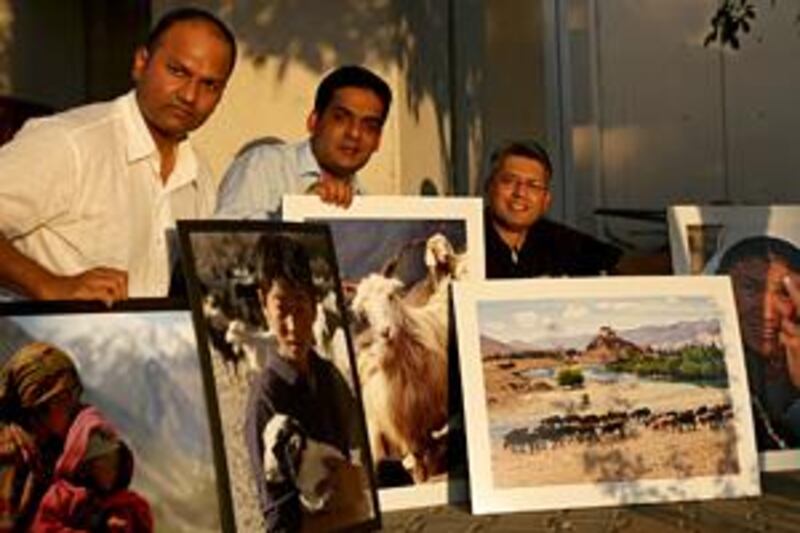ABU DHABI // When Shahid Hashmi and his friends embarked on a two-week journey into the heart of Kashmir, they expected to photograph the breathtaking landscape. Instead, they ended up with pictures that captured the hardship of the lives of the nomads and migrant workers who live there in isolation and extreme poverty.
Taken aback by what they saw, Mr Hashmi and the other Abu Dhabi-based photographers decided to raise aid money through a series of exhibitions. The proceeds will be donated to Unicef, the UN children's fund, to start a vaccination programme in these remote areas. The Kashmir Through the Lens exhibition, which already has made stops in Germany and Dubai, will travel to the US this week. It will be in a gallery in Baltimore, Maryland, for at least the next month.
The Abu Dhabi-based photographers - Abdul Nasser, Carl Abrams, Henry D'Silva and Sujin Balakumaran and Mr Hashmi - have formed a collective that meets monthly at the Cultural Foundation. Five of the six are Indian, so in 2007 they decided to trek into the hills of Kashmir. They spent 18 days in the states of Jammu and Kashmir, and travelled to remote areas such as Ladakh, Pahalgam, Kargil and Srinagar.
They photographed nomadic shepherds whose livelihood is their cattle, which they herd up and down the mountains depending on the weather. "We met lots and lots of groups [of nomads]," said Mr Hashmi, a banker in Abu Dhabi. "They'd ask us for medicines. No one asked us for money or food. "Most of them were suffering from fever, body ache, toothache and other such basic ailments, and didn't have basic medication even for that."
Along the nomads' routes, the photographers noticed several camping sites with fixed tents. "Upon closer inspection, these tents turned out to be parachutes that the army used to air drop supplies to them during the winter months. They have nothing else," Mr Hashmi said. So the group decided to work with Unicef to set up vaccination services along on the nomads' routes. "We thought that we should be able to collect and supply at least essential medicines," Mr Hashmi said.
The photographers also noticed shocking circumstances for migrant labourers working in the construction industry. Those building highways and bridges for contractors serving the Indian army often had little access to water, the Abu Dhabi group noticed. "They used to show us empty bottles and stop us to ask for drinking water," Mr Hashmi said. When the group approached Unicef in Dubai to set up a programme to distribute medicines, they found out that Dh3.67 (US$1) can vaccinate 10 children.
"Depending on how much we give them, they will be able to launch a campaign. sbhattacharya@thenational.ae






